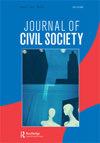Renegotiating state-third sector relations through collaborative partnerships: The case of reception services for asylum-seeking children in Gothenburg, Sweden
IF 0.9
Q3 POLITICAL SCIENCE
引用次数: 0
Abstract
Unprecedented numbers of unaccompanied minors entering Sweden in 2015, alongside other challenging social issues, have contributed to renegotiating collaborative forms of local governance in the country. This has resulted in an emergence of collaborative partnerships between civil society and public actors (Idéburna offentliga partnerskap or IOP), as real alternative to the market-based contracts and traditional state grants. This article addresses IOP from a collaborative governance perspective and questions if and how it may cope with a major and well known governance challenge, that of balancing the different roles and principles of public and civil society realms, so as to sustain an effective and legitimate cross-sectorial partnership. It asks, may and how an IOP enable civil society organisations a more active role in co-designing and co-implementing local welfare services with public sector actors without undermining their distinctiveness? The arguments are based on a case study of, at the time, the largest IOP in Sweden initiated for early reception of unaccompanied minors in Gothenburg city. The partnership is assessed against a normative theoretical framework of balanced state-third sector relations. The results suggest that IOPs, under certain conditions, may serve as ‘spaces of hope’ for more balanced power relations in local governance models.通过合作伙伴关系重新谈判国家与第三部门的关系:瑞典哥德堡寻求庇护儿童接待服务的案例
2015年,空前数量的无人陪伴未成年人进入瑞典,再加上其他具有挑战性的社会问题,促使瑞典重新谈判地方治理的合作形式。这导致民间社会和公共行为体之间出现了合作伙伴关系,作为以市场为基础的合同和传统国家赠款的真正替代品。本文从协作治理的角度来探讨IOP,并探讨它是否以及如何应对一个众所周知的重大治理挑战,即平衡公共和民间社会领域的不同角色和原则,以维持有效和合法的跨部门伙伴关系。它提出的问题是,IOP能否以及如何使民间社会组织在与公共部门参与者共同设计和共同实施地方福利服务方面发挥更积极的作用,同时又不损害它们的独特性?这些论点是基于当时瑞典最大的IOP的案例研究,该项目是为了在哥德堡市早期接收无人陪伴的未成年人而发起的。根据平衡的国家-第三部门关系的规范理论框架来评估这种伙伴关系。结果表明,在一定条件下,IOPs可以作为地方治理模式中更平衡的权力关系的“希望空间”。
本文章由计算机程序翻译,如有差异,请以英文原文为准。
求助全文
约1分钟内获得全文
求助全文

 求助内容:
求助内容: 应助结果提醒方式:
应助结果提醒方式:


